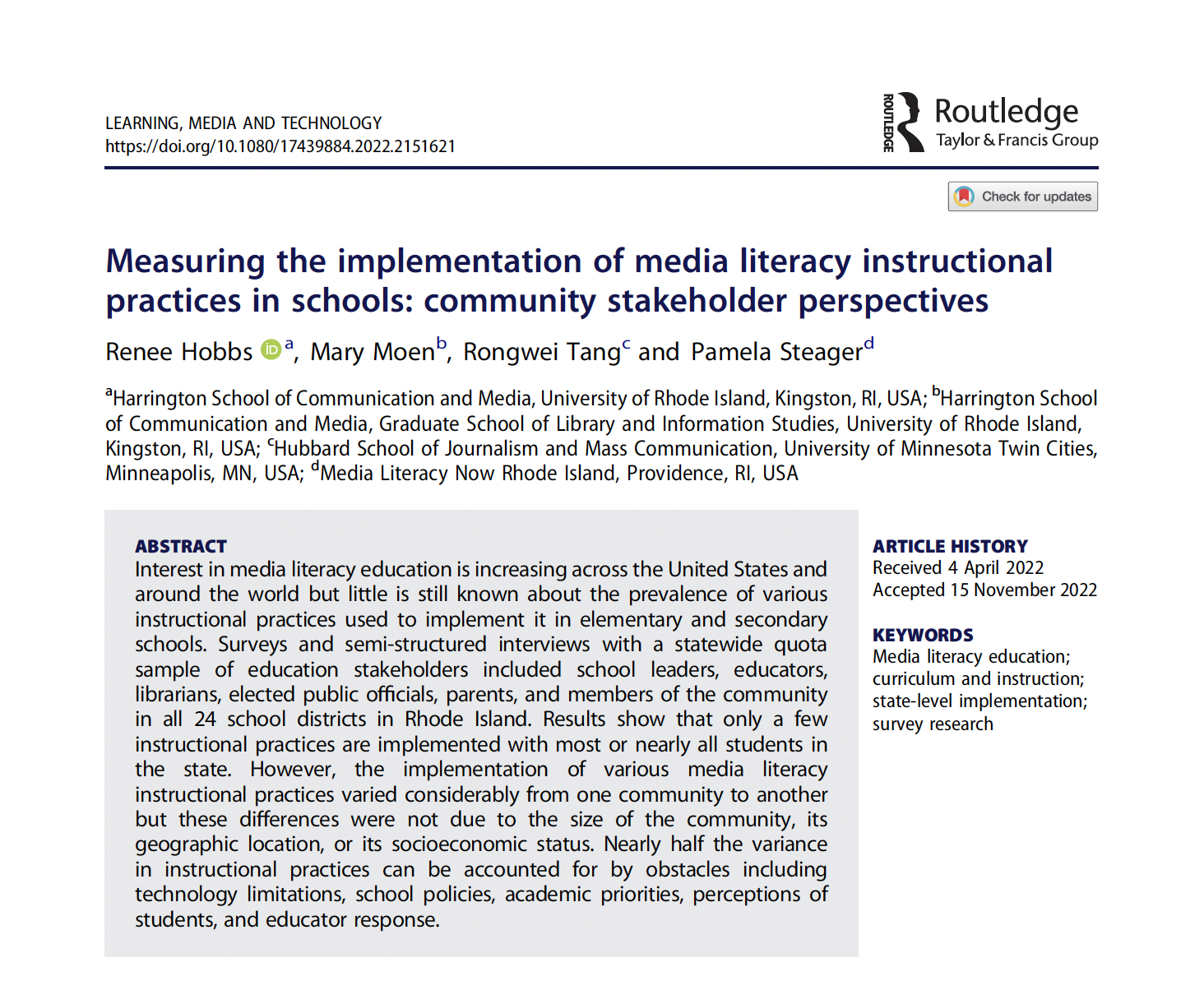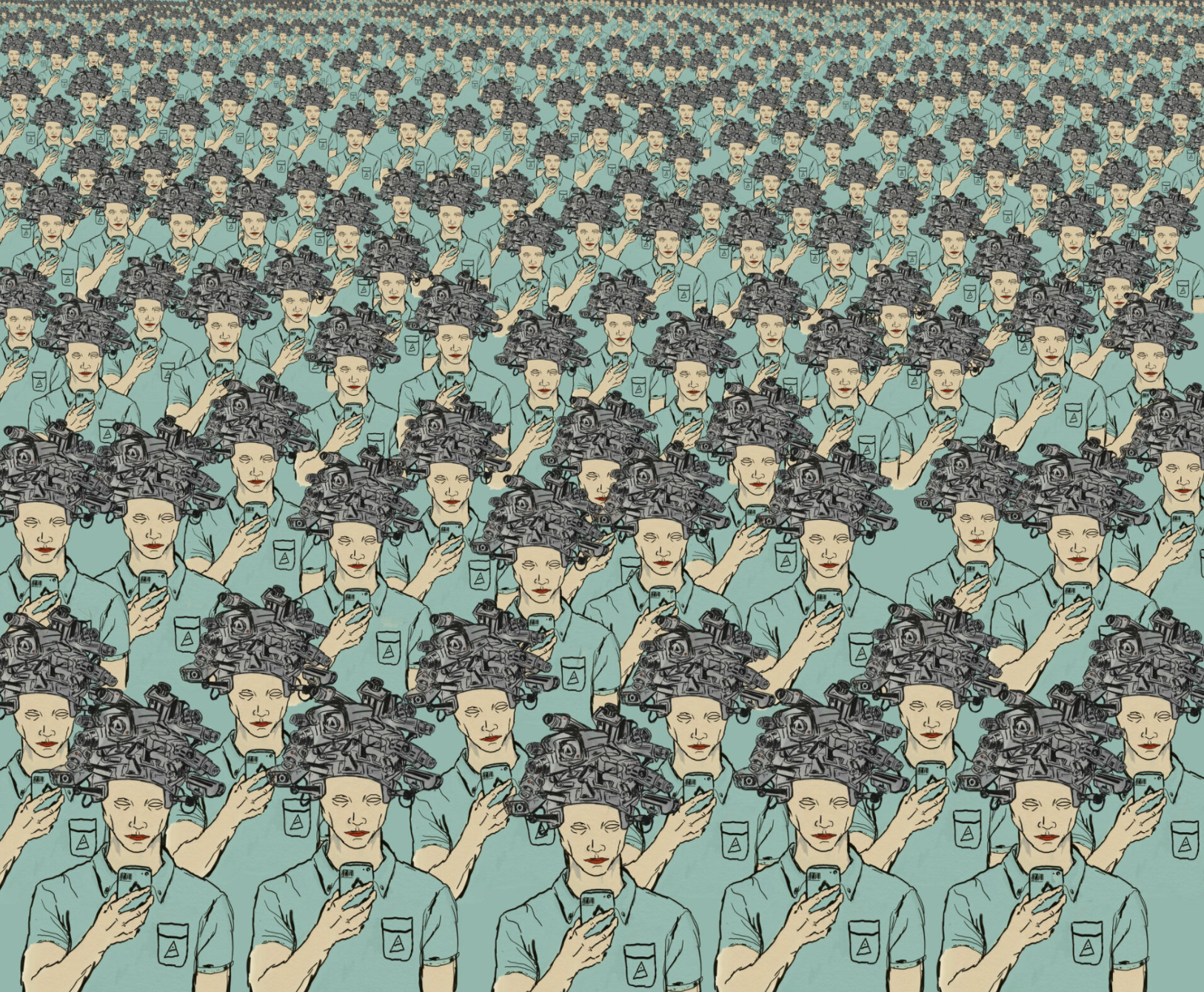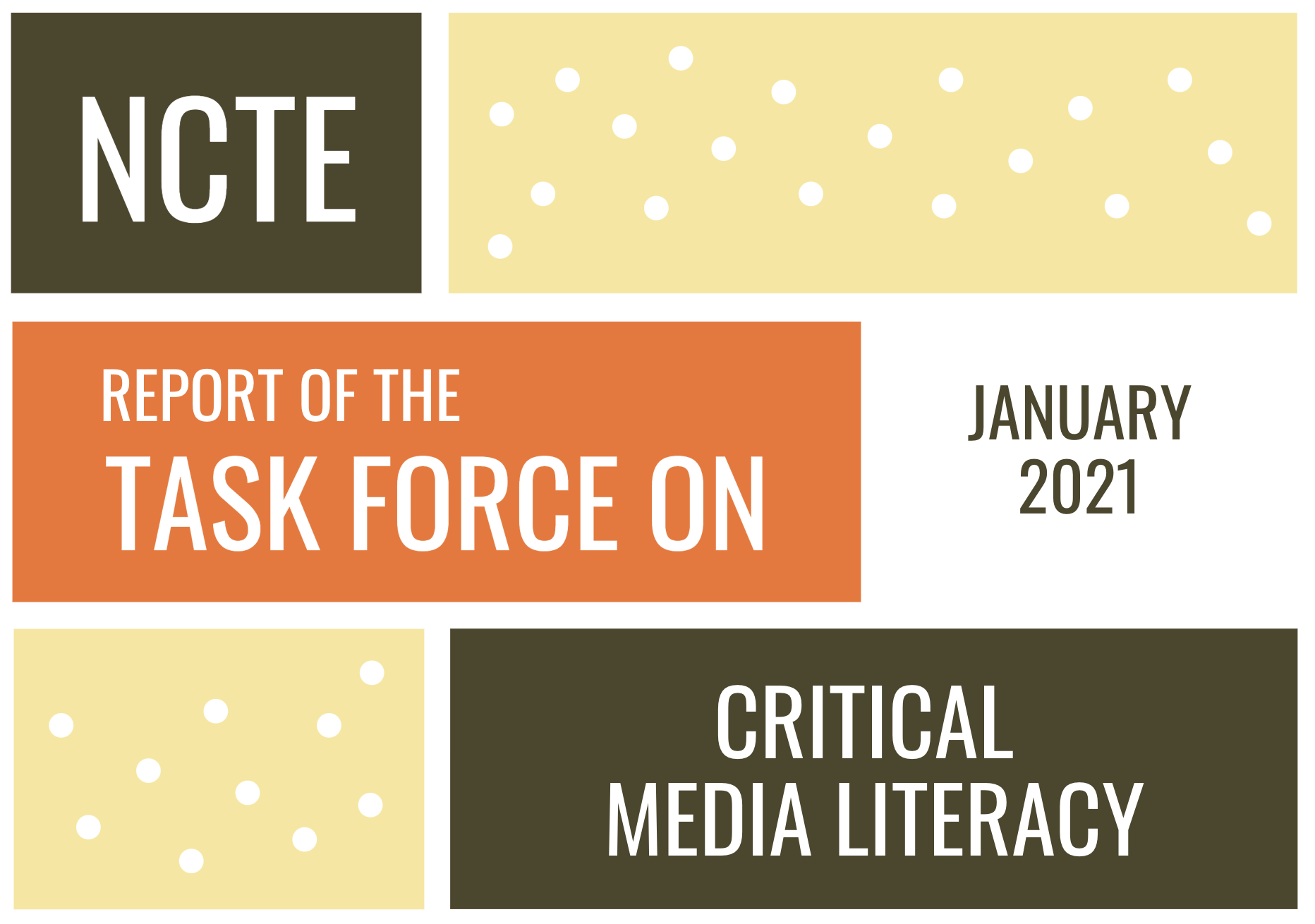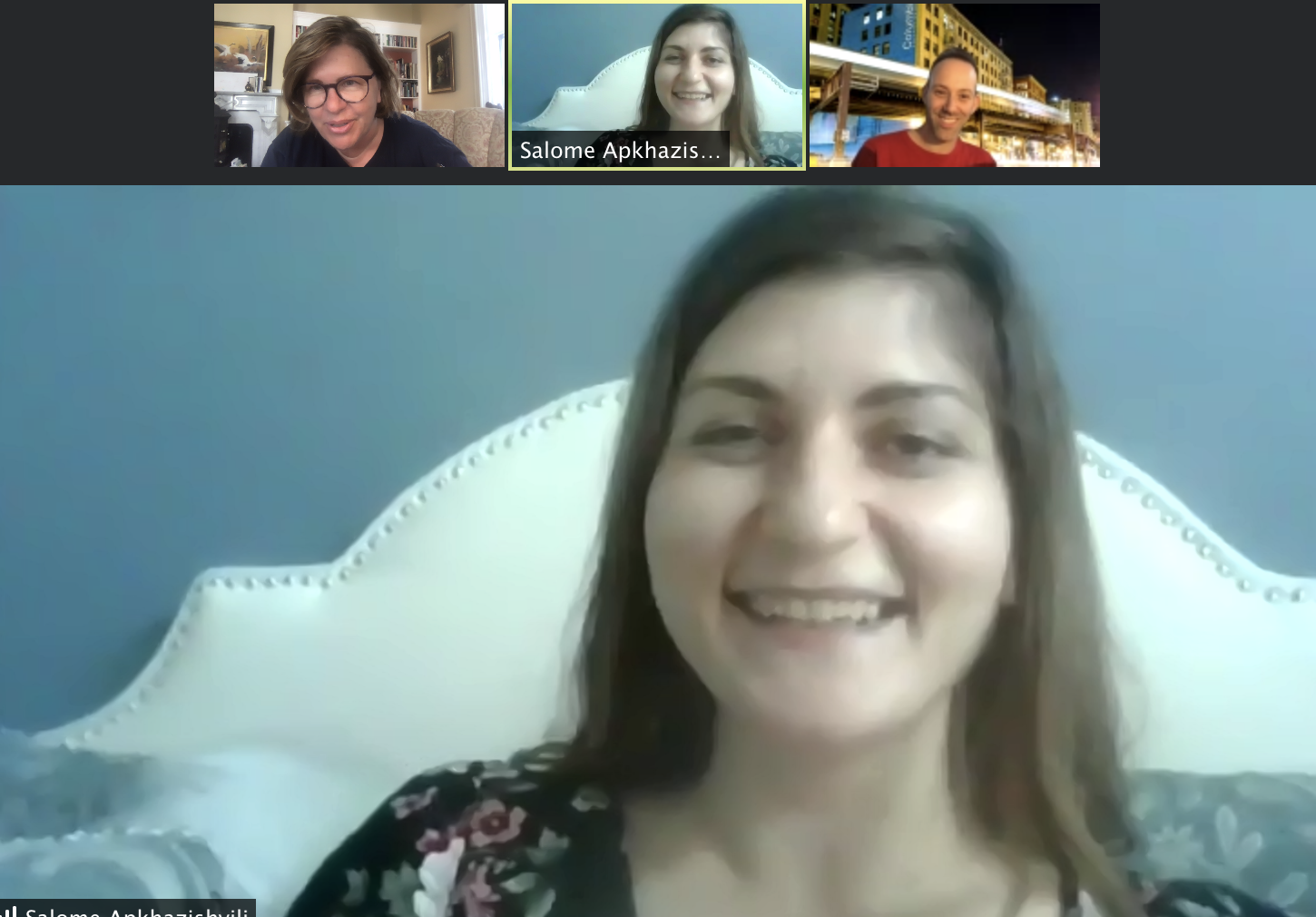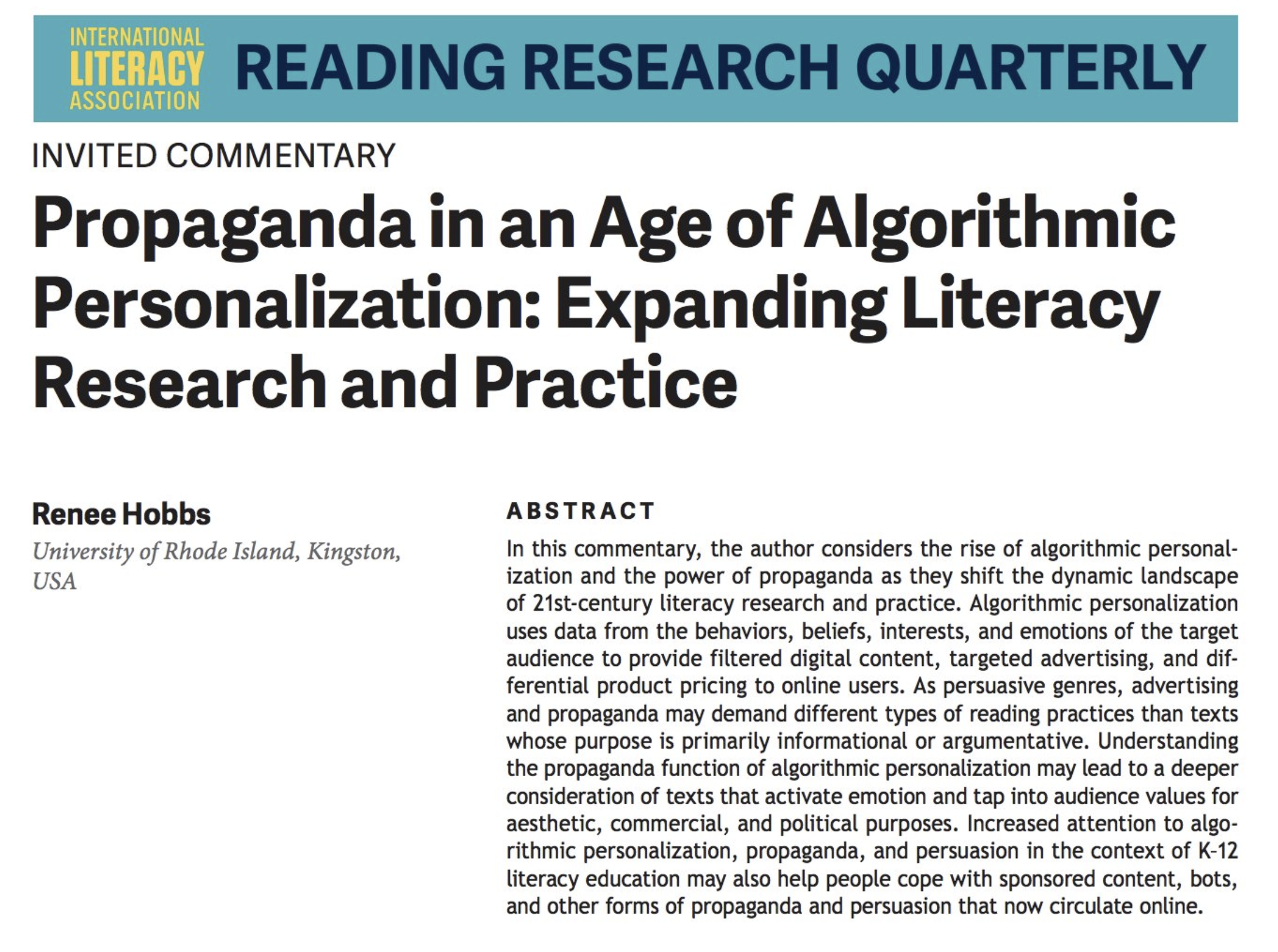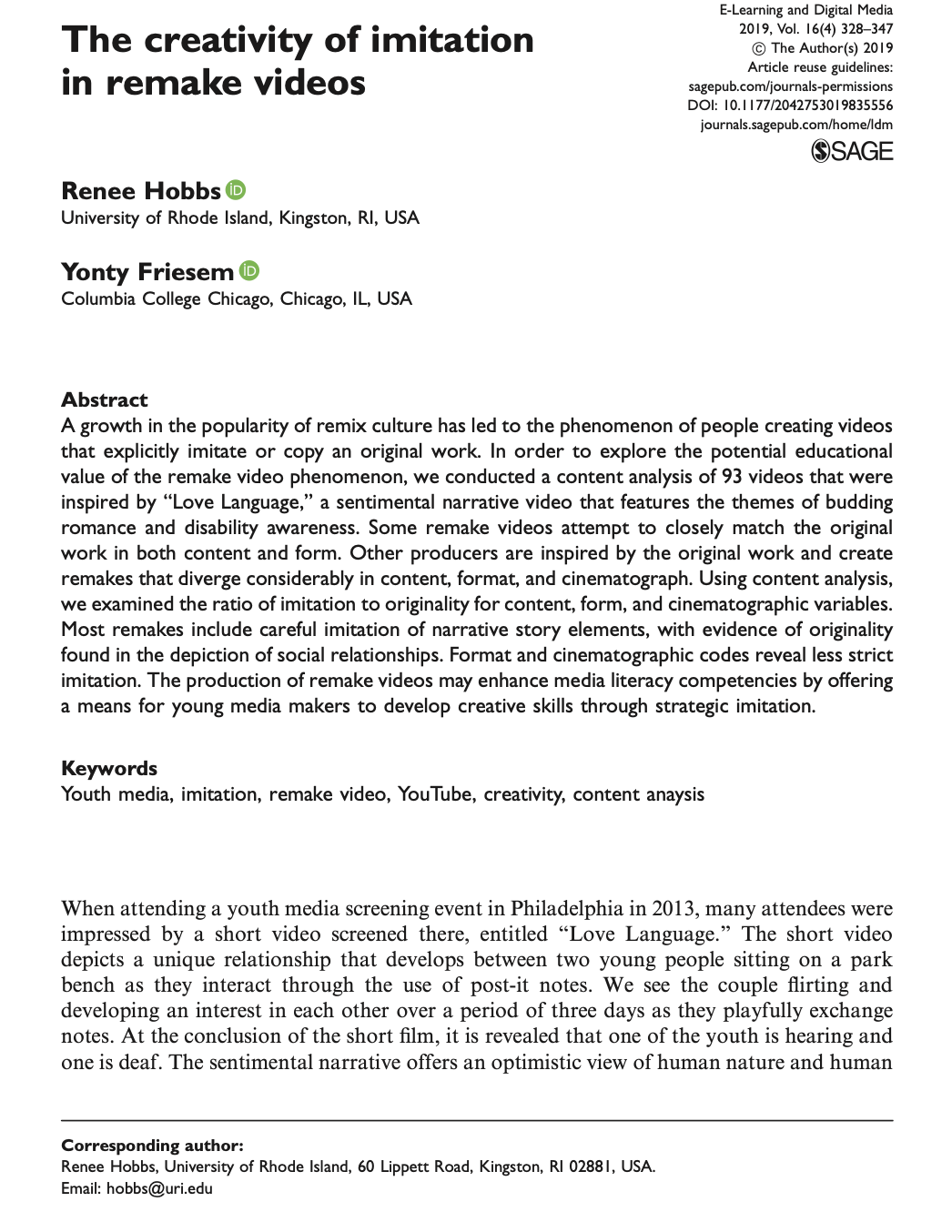- Home
- Teaching Media Literacy
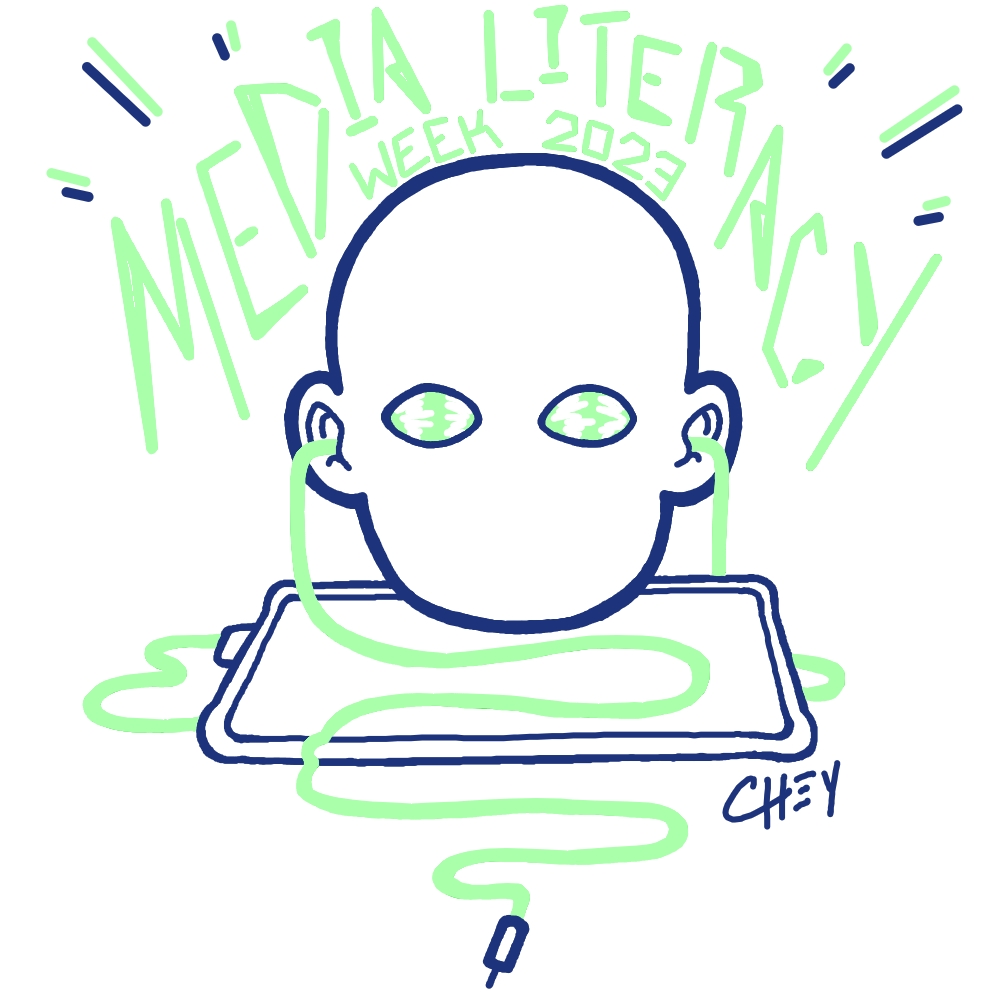
How Media Literacy Week Promotes Community
DAY: Monday, December 18th, 2023 TIME: 12 pm EST | 6 pm CET | 1030 pm IST Location: Register for Webinar Here. In this webinar, Pamela Morris and her colleagues and students will review and reflect on their experience in developing Media Literacy Week in Columbus, which was sponsored locally by Indiana…
Read More
Media Club: A case for optimism
In this session, Maria Polski discusses how media education is enhanced by the accumulative approach, positing that a modern communicator must be competent at all levels of communication: oral, written, print, visual and digital. She presents a case for optimism: a way to encourage humans to develop and maintain the cognitive skills promoted by each of the communication technologies. A reader…
Read More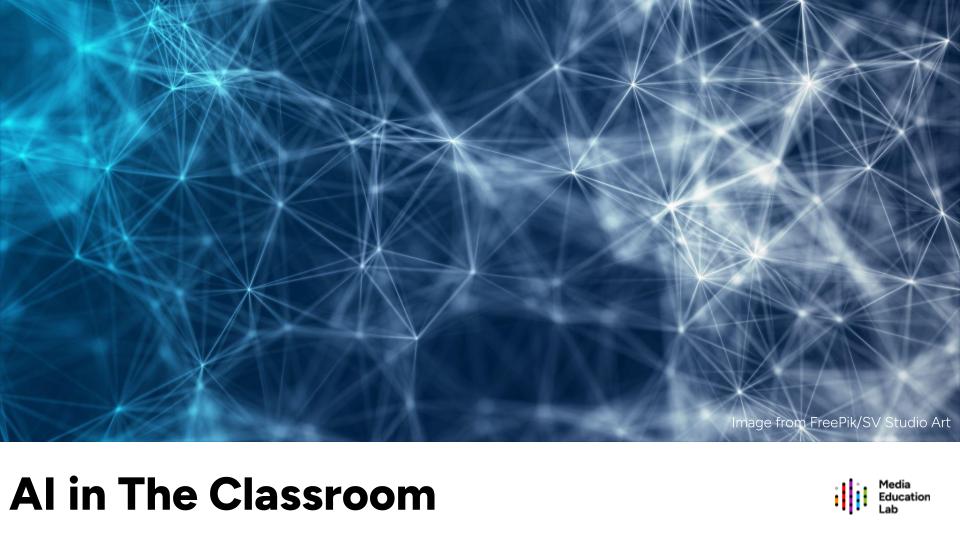
AI 101: Introducing students to generative AI
Read here about our full webinar series on AI in the Classroom In this webinar, we’ll share a model for introducing students to some of the “big questions” about machine learning and generative AI. While many students have experience using generative AI, not all do - and many are unaware of the ways in which machine…
Read More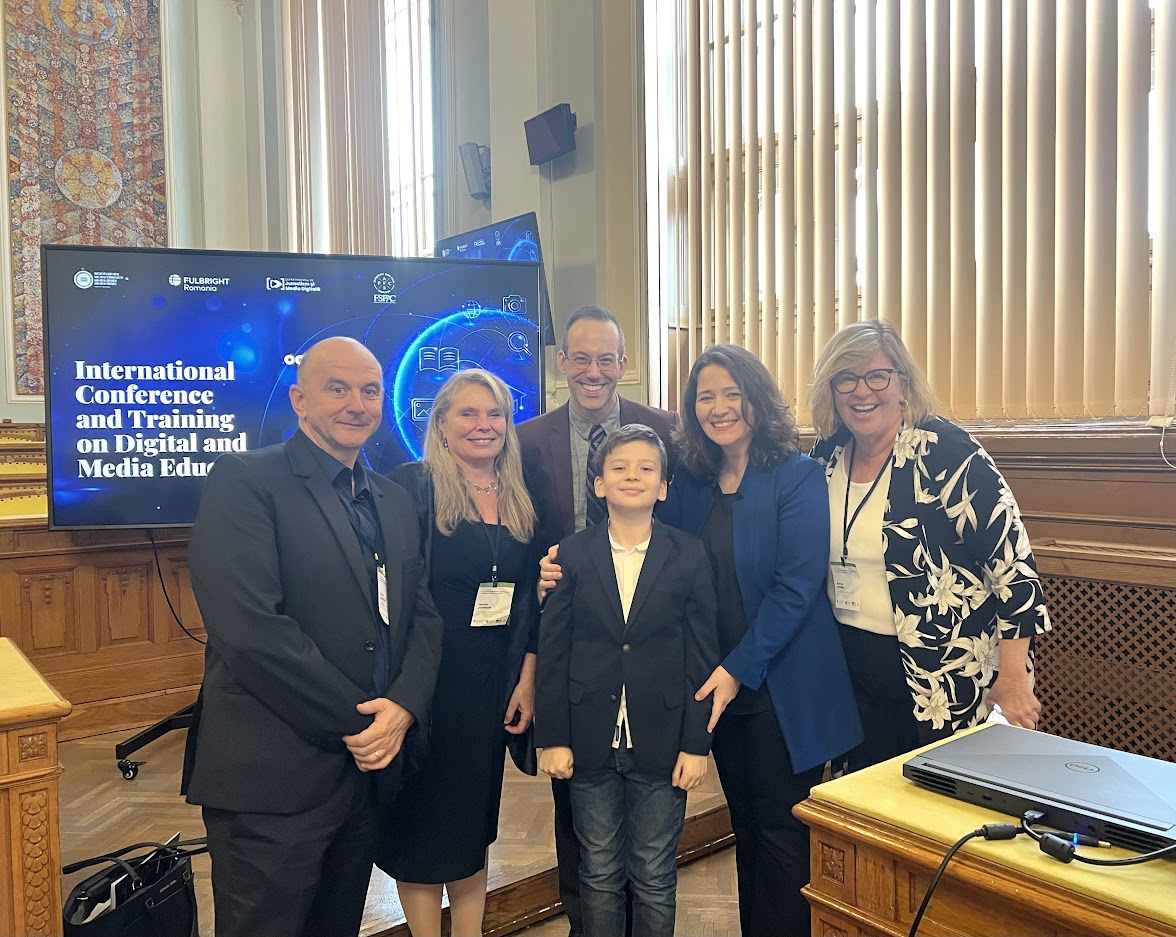
Babeș-Bolyai University, Cluj-Napoca, Romania
International Conference In celebration of Media Literacy Week, our co-directors Renee Hobbs and Yonty Friesem will participate as keynote speakers at the International Conference and Training on Digital and Media Education.. From, Oct. 26 to Oct. 27, national and international scholars, school educators, journalists, media professionals, NGOs and stakeholders will gather at Babeș-Bolyai…
Read More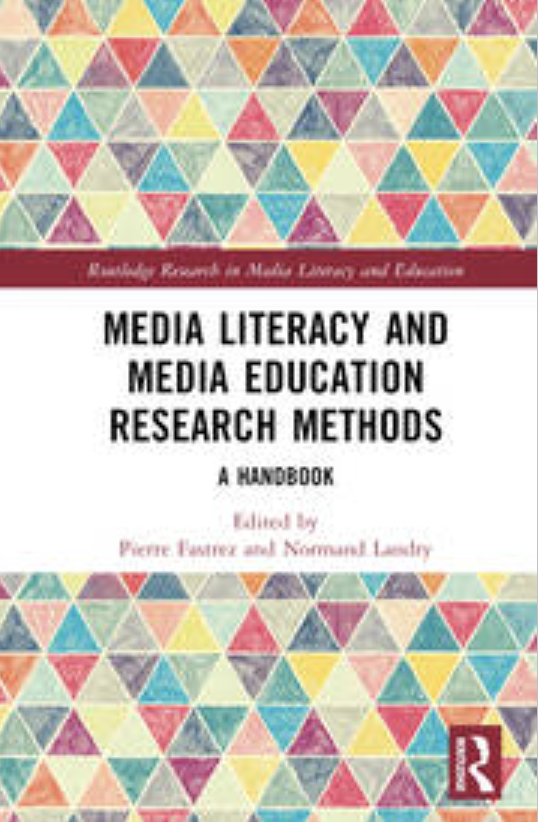
Media Club: Media Literacy and Media Education Research Methods: a Handbook
In this session, Pierre Fastrez and Normand Landry will examine the field of media literacy and media education research from the perspective of its research methods. They will argue that methodological discussions are an exciting way to interrogate the foundations of this field of research, and open up a dialogue on fundamental questions about what is meant by “media education”. Such…
Read More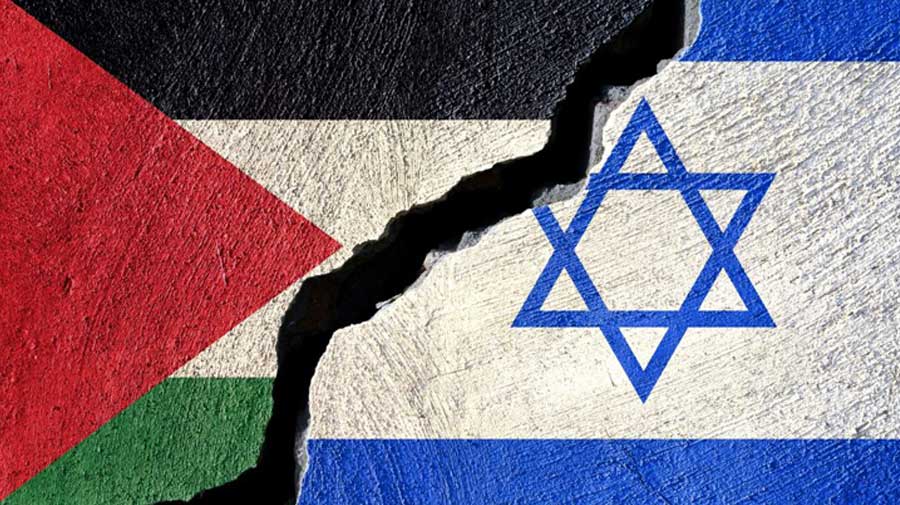
The Gaza-Israel War in the Media
While we might not be able to solve the violent conflict in the Middle East, we as media educators need to share our practice and be there for our learners. By connecting with our community of learners, asking critical questions, sharing needs and emotions as a group, challenging media representations, and fighting the spread of biases and prejudices, we can better understand, reflect,…
Read More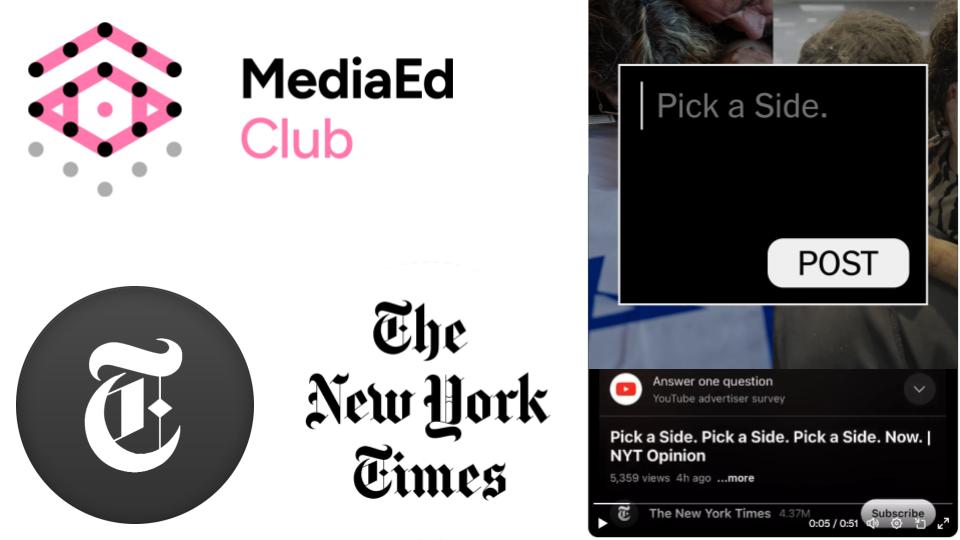
Media Club: Pick a Side. Pick a Side. Now.
In the December meeting of the Media Club, Renee Hobbs will model a lesson from the New York Times Learning Network in a viewing and discussion of "Pick a Side. Pick a Side. Now," a four-minute Opinion video that explores the role of social media in the current…
Read More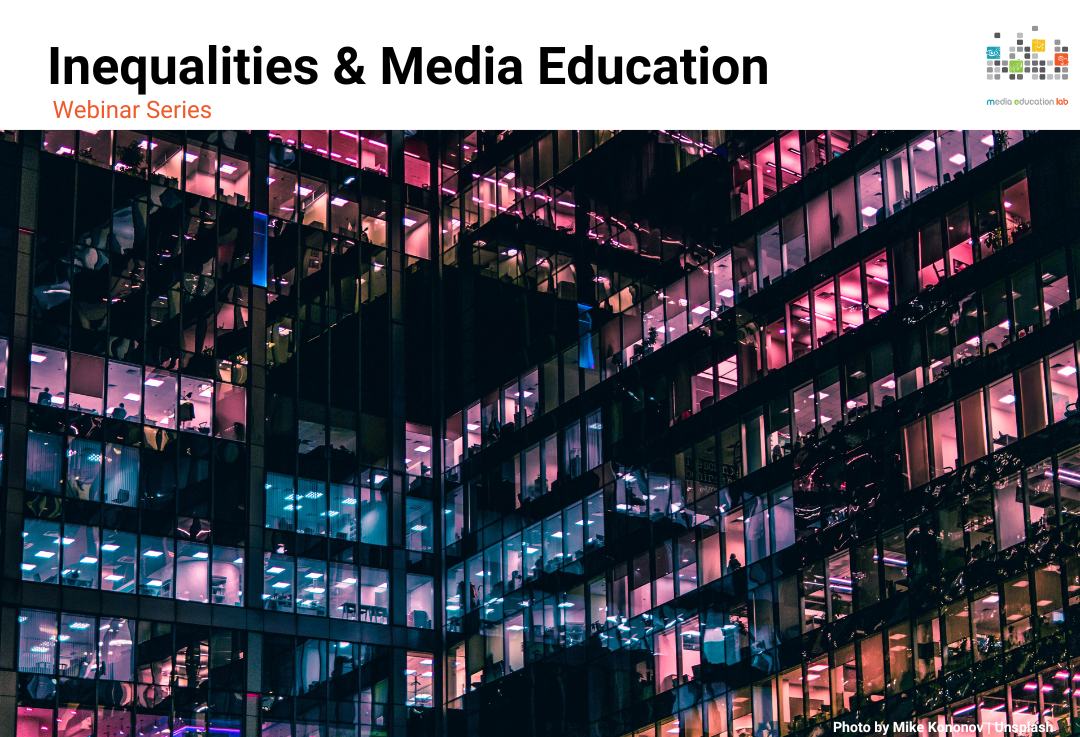
Artivism and the Fight Against Marginalisation in the Global South
Read here about our full webinar series on Inequalities and Media Education In this first webinar, we aim at reflecting on the potential of media activism and artivism to create more sustainable connections between Global South communities and to promote a dialogue to challenge…
Read More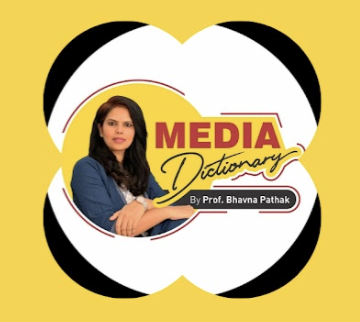
Introducing the Media Dictionary
Media Dictionary is an audiovisual, multilingual, and digital community media initiative that was initiated in 2021 with the primary objective of engaging with diverse communities across India on issues related to media literacy in local languages and dialects. More than 50 volunteers have posted more than 1,000 videos in 35 languages and…
Read More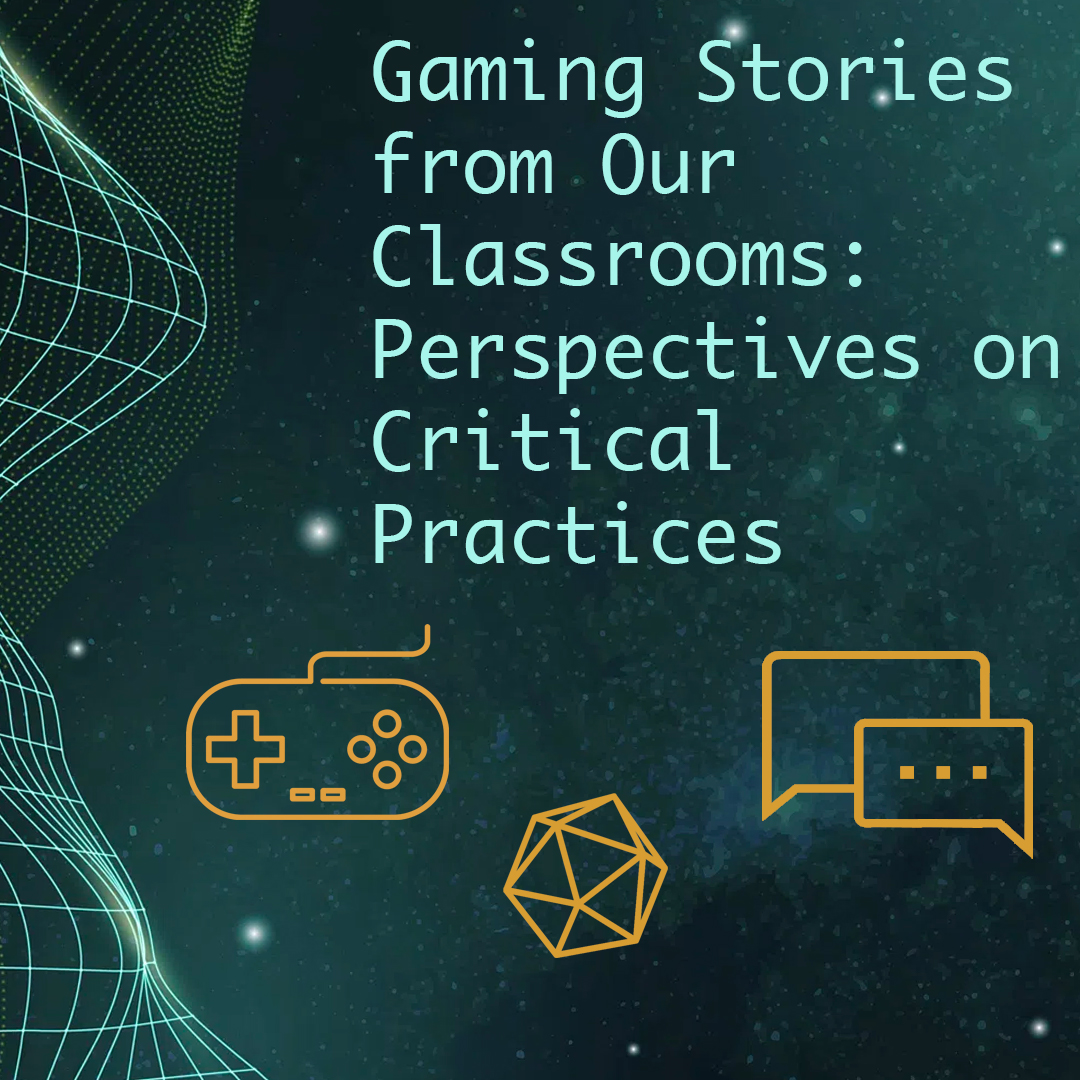
Gaming Stories From Our Classrooms: Perspectives on Critical Practices
WEBINAR DESCRIPTION “Gaming Stories From Our Classrooms: Perspectives on Critical Practices” focuses on educator storytelling around game implementation in school spaces. A panel of teachers with a variety of experiences, from novice to expert (noobs to pro), join researchers from the Literacy Research Association's Critical Gaming Literacies Study Group for this one hour event. Panelists…
Read More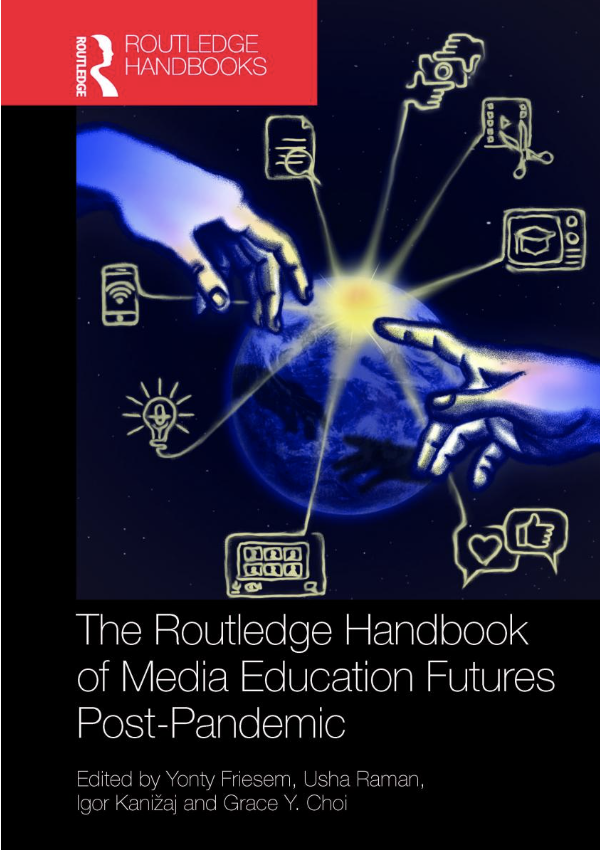
The Routledge Handbook of Media Education Futures Post-Pandemic.
Our team from the Media Education Lab is proud to announce the publication of The Routledge Handbook of Media Education Futures Post-Pandemic. This handbook showcases how educators and practitioners around the world adapted their routine media…
Read More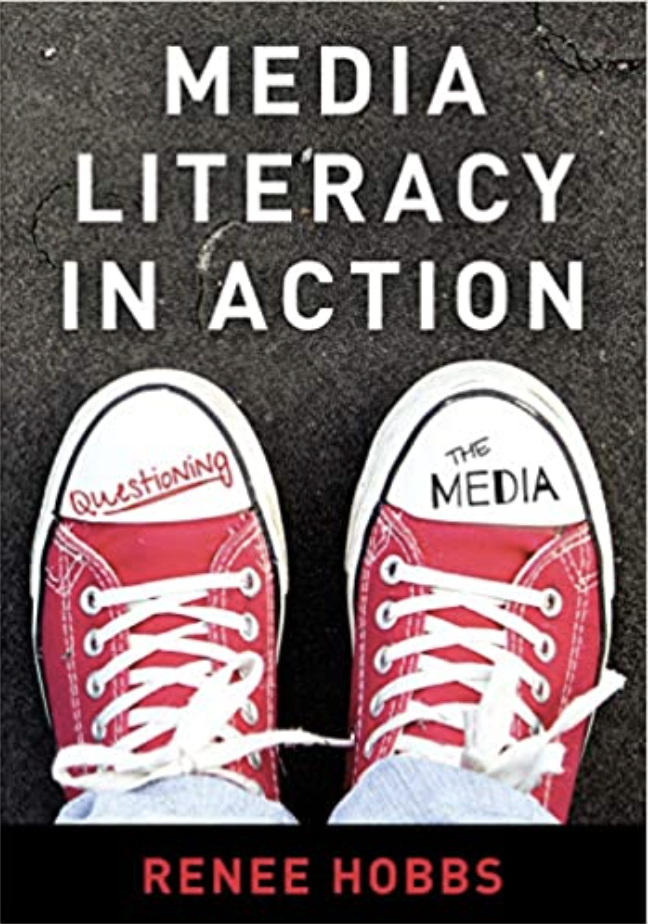
Media Literacy in Action
The blurring of entertainment, information, and persuasion is reshaping work, life, and citizenship. As a result, our relationship to media has never been so important nor so complex. By asking critical questions about what they watch, listen to, read, and use, students can be better prepared to be responsible communicators who can use a variety of formats and genres for self-expression and…
Read More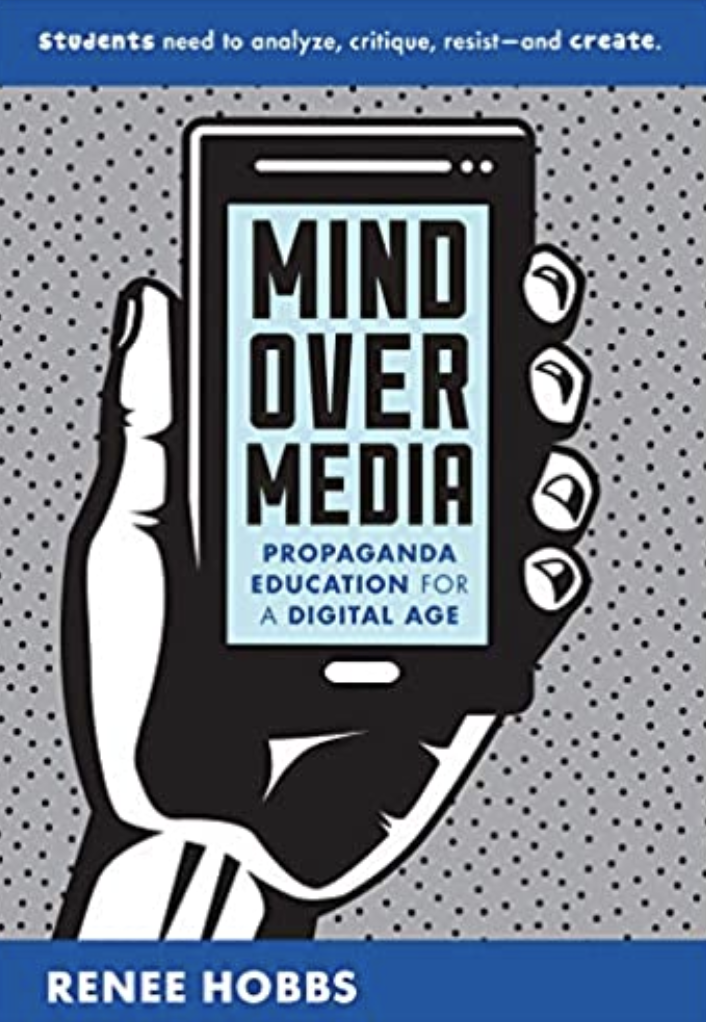
Mind Over Media: Propaganda Education for a Digital Age
Winner of the American Association of Publishers 2021 PROSE Award for Excellence in Social Sciences Media literacy educators…
Read More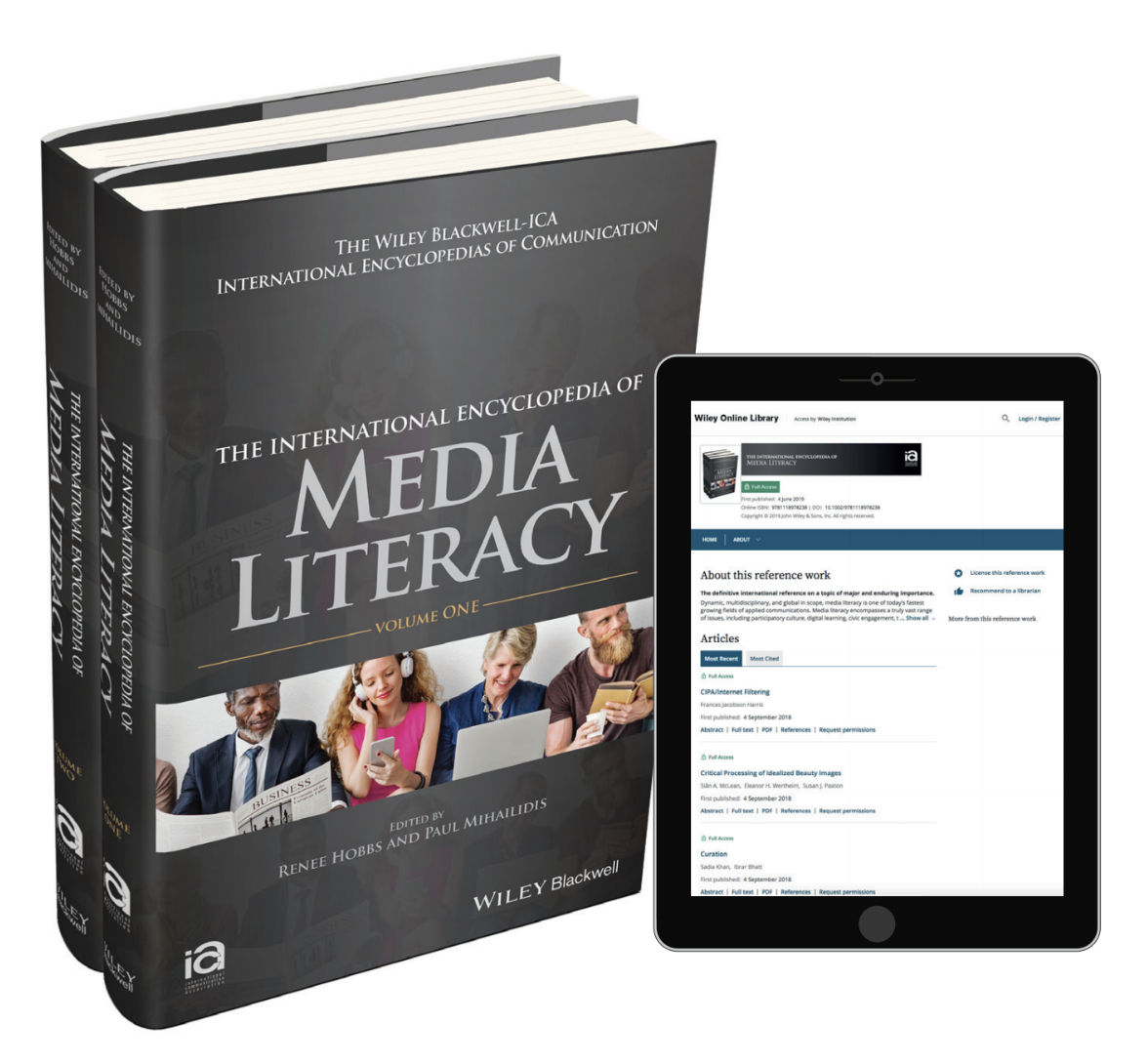
The International Encyclopedia of Media Literacy
The definitive international reference on a topic of major and enduring importance Dynamic, multidisciplinary, and global in scope, media literacy is one of today’s fastest growing fields of applied communications. Media literacy encompasses a truly vast range of issues, including participatory culture, digital learning, civic engagement, the impact of media on children, the…
Read More
Deconstructing Disney
Deconstructing DisneyThis fun, intergenerational workshop explores what we love and hate about Disney films, characters and brands from the past and present. If you’re a kid, teen, parent, educator or anyone who works with youth, you will learn how people’s knowledge, beliefs and attitudes can be harnessed and expanded for deeper learning through simple instructional strategies. Discovering how…
Read More
Courageous Conversations Curriculum
Bring media literacy and active listening to middle school, high school, college and adult learnersWith support from talented educators and experts who participated in the program, we’re proud to bring you the Courageous Conversations Curriculum. This book contains a collection of materials to help you bring media literacy and active listening into your middle school, high school or college…
Read More
Memories of September 11, 2001
The series of four coordinated terrorist attacks by the Islamic terrorist group al-Qaeda on the U.S. on Tuesday, September 11, 2001 continue to deeply affect U.S. identity and politics. Through a digital academic forum, learners gather information and compare observations of memories of September 11, 2001 to reflect upon the variety of experiences and interpretations of this important…
Read More
Mind Over Media: Analyzing Contemporary Propaganda
www.mindovermedia.us Mind Over Media is the winner of the 2021 PROSE Awards for Social Sciences by the American Association of Publishers, the membership organization of the scholarly and academic press. ORDER THE BOOK!…
Read More
Media Education for Law Enforcement Officers
The Media Education Lab collaborated with the Austin (TX) Police Academy to create the first-ever professional development program for police instructors on media literacy education.NEW! Read our article in Police Chief magazine!Access print handouts, videos, curriculum, and slides for the professional…
Read More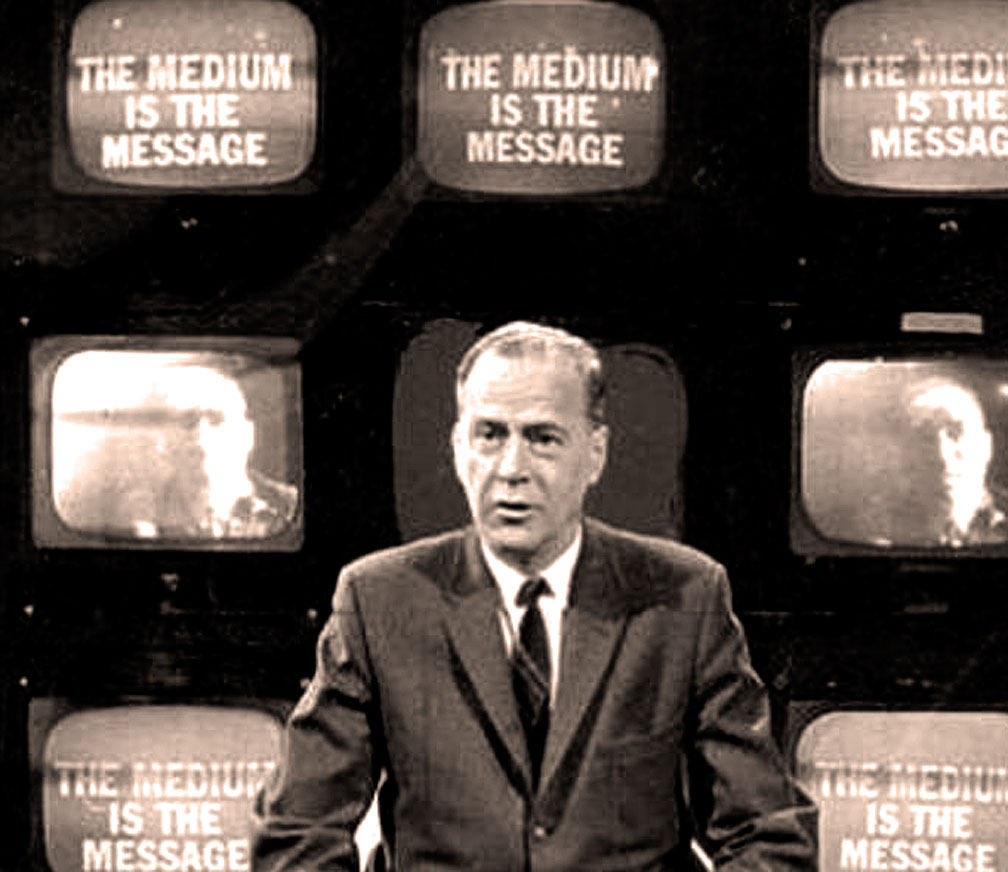
Grandparents of Media Literacy
The Grandparents of Media Literacy is the website companion to a book edited by Renee Hobbs entitled Exploring the Roots of Digital and Media Literacy through Personal Narrative, which was published by Temple University Press in 2016. Read the book online. The…
Read More
Media Literacy Smartphone
NEW! Learn how to use the Media Literacy Smartphone with learners of all ages! Download the free learning guide to bring the power of media literacy analysis to your learners! These…
Read More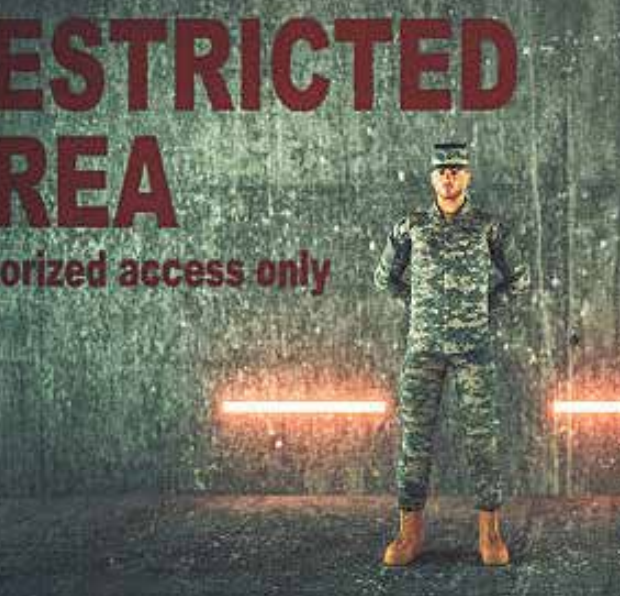
Teach the Conspiracies
Workshop: Teach the Conspiracies Read and Annotate the PDF: Teach the Conspiracies by Renee Hobbs Flipgrid: Explore a Conspiracy Theory and Comment View: Can You Win an Argument…
Read More
Media Literacy Textbook
The blurring of entertainment, information, and persuasion is reshaping work, life, and citizenship. As a result, our relationship to media has never been so important nor so complex. By asking critical questions about what they watch, listen to, read, and use, students can be better prepared to be responsible communicators who can use a variety of formats and genres for self-expression and…
Read More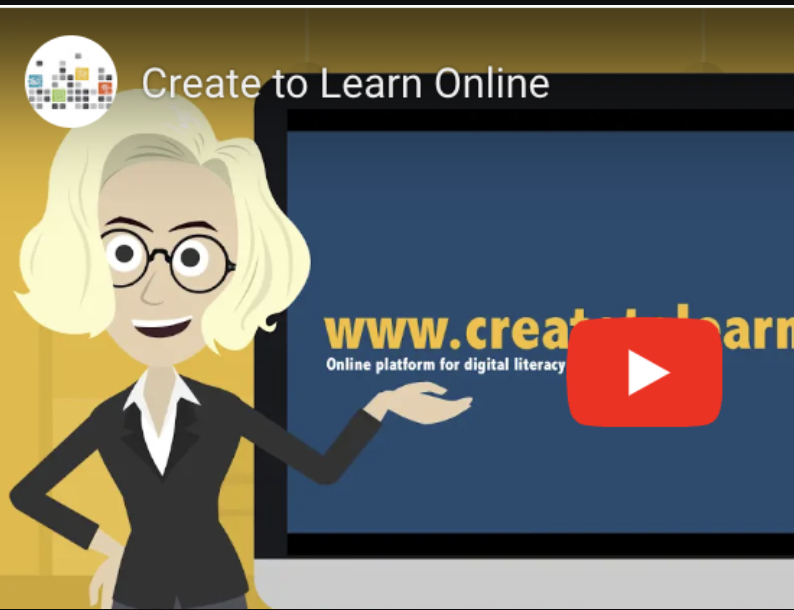
Create to Learn Online
When students create media to represent their learning, they really learn! At the Create to Learn Online website, you can access more than a dozen free and low-cost digital tools for creating podcasts, videos, infographics, animations, videos, remix and more. Plus, you can view and upload multimedia work samples and access study notes…
Read More